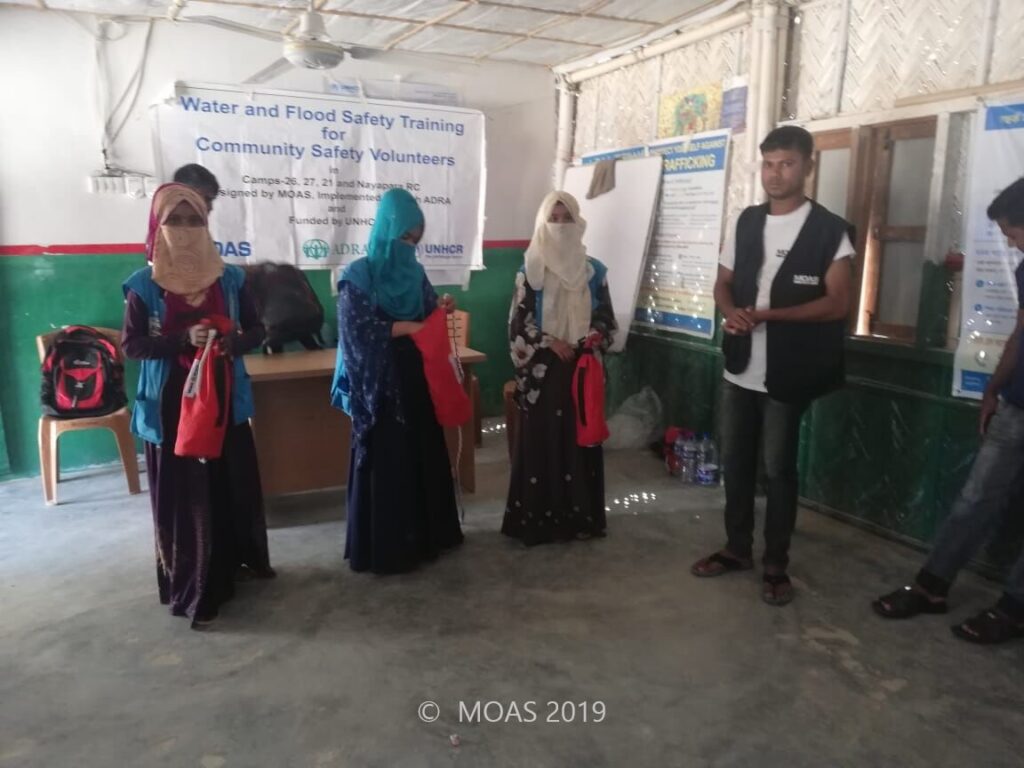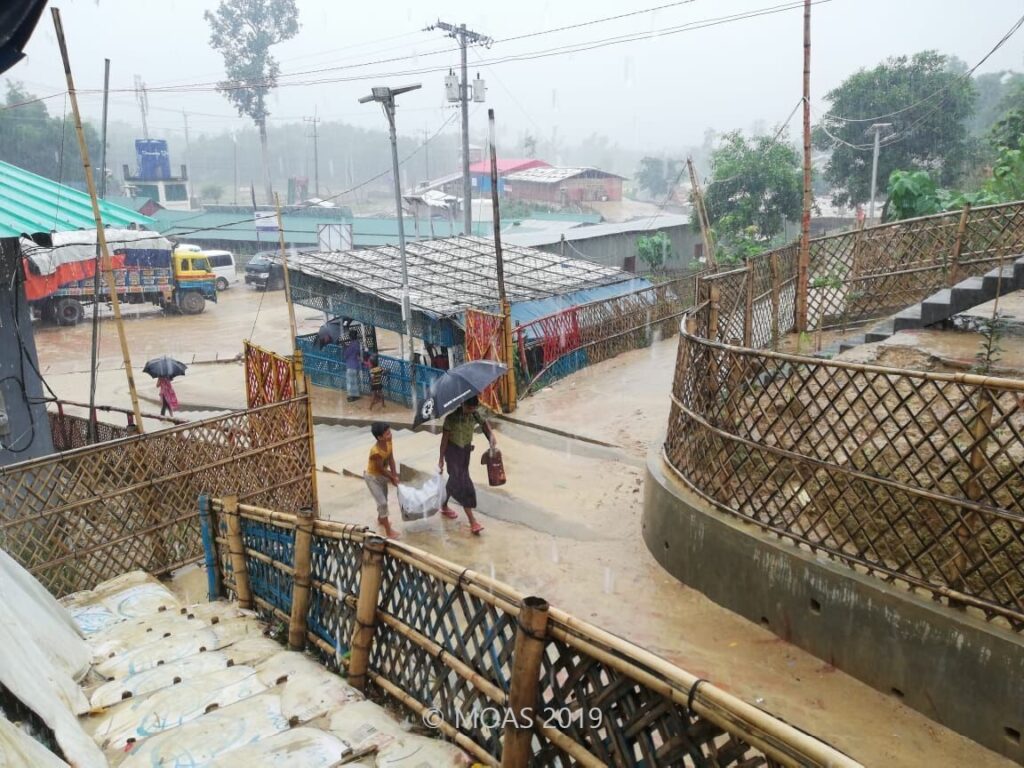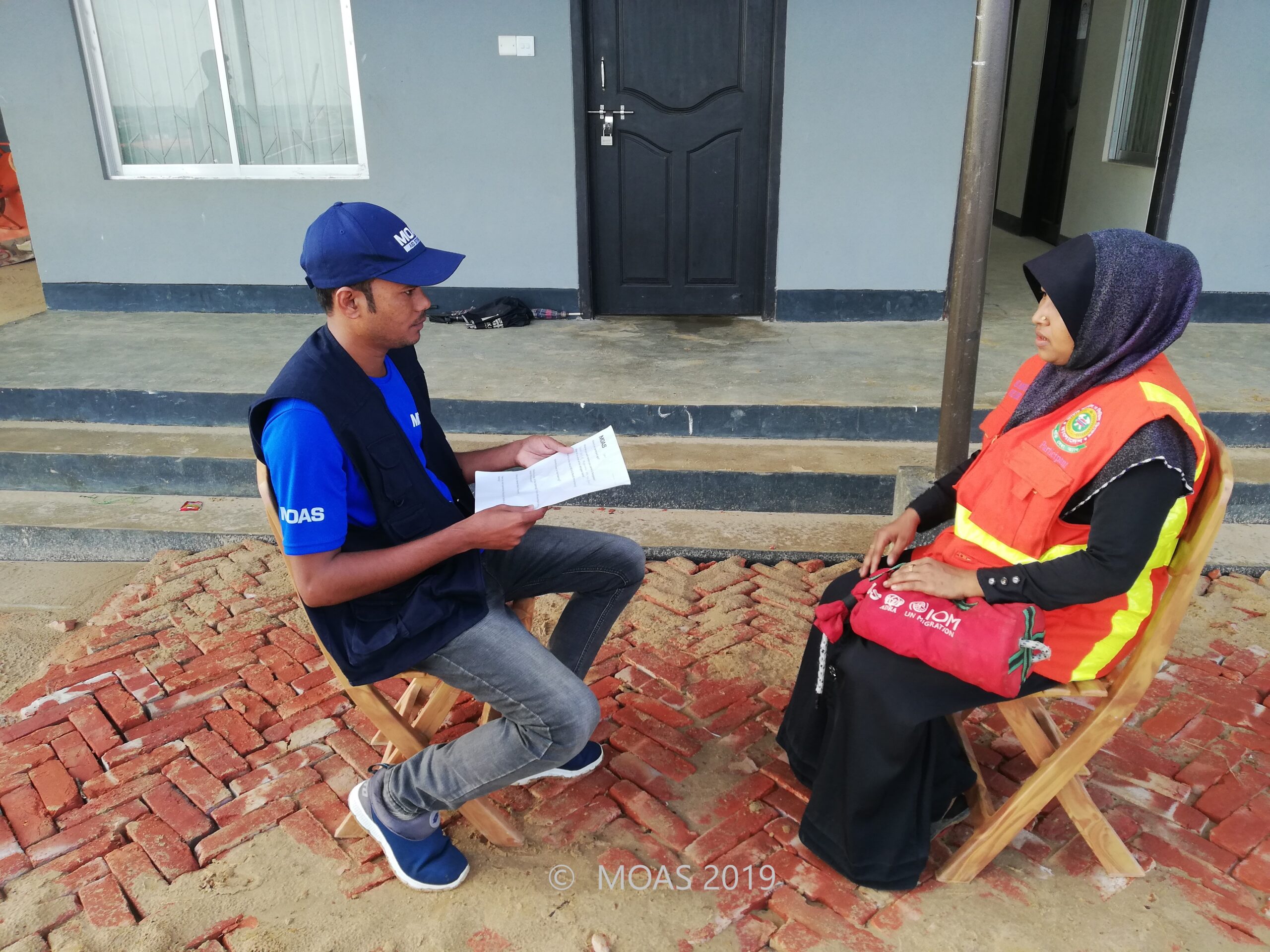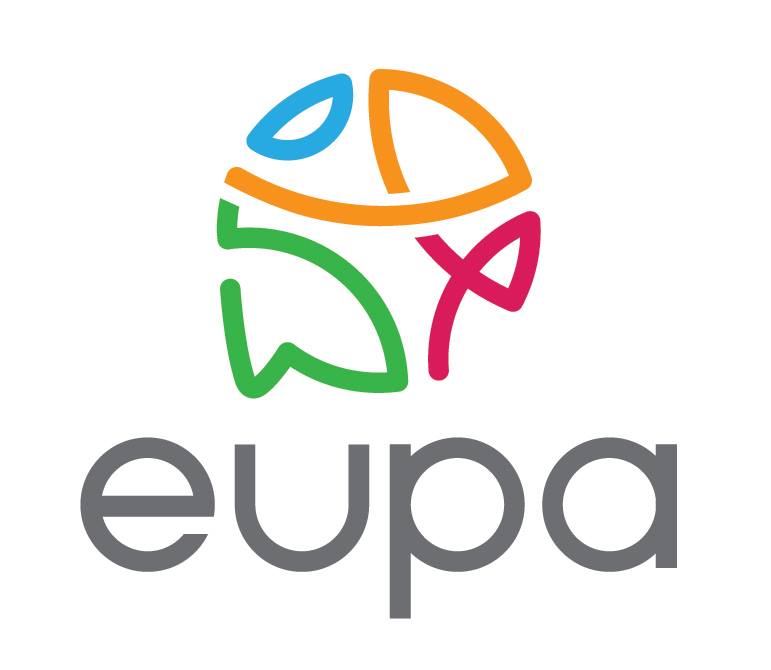This year’s World Humanitarian Day focuses on the theme of women in humanitarianism, so we here at MOAS wanted to take the opportunity to shine a light on our fantastic female Rohingya volunteers taking part in our extensive flood rescue training project in Cox’s Bazar, Bangladesh. By participating in the training these women not only increase their skills, but also place themselves as active members of the humanitarian response to the situation affecting their community.
MOAS began operations in Bangladesh as a response to the 2017 influx of Rohingya fleeing persecution in Myanmar, but in reality, waves of Rohingya refugees have been crossing the border since the 1970s when the Myanmar authorities first began their targeted attacks on Rohingya populations in Rakhine state. The result of these migration patterns mean the Cox’s Bazar region of Bangladesh is now home to a vast and long-term community of Rohingya, many of whom were in fact born and raised in the camps.
Due to the nature of their displacement, the demographics of the camps are also unusual, with 55% children and 25% adult women. One in six families are headed by a single mother. For many of these women, their position in the community has been dramatically altered by the circumstances of their flight. Women have not only taken on roles as coordinators and community leaders but have also formed an essential part of the humanitarian program for the camps.
Promoting local participation in the humanitarian response is key to creating an accountable and sustainable humanitarian response. MOAS’ programming shows how women can be at the forefront of this local involvement, with many of our trainees being female Rohingya. The Rohingya women involved in our flood rescue training have learned valuable practical skills which enable them to work as first responders in flood crisis situations – an occurrence which can be all too familiar in cyclone prone Bangladesh. The training also follows our train-a-trainer approach, meaning some of the women we train have the opportunity to pass their skills on within the community.
To further highlight the work of our volunteers, we asked some of our trainees about their experiences. One of our participants, Shofika* was kind enough to provide a testimonial about her time on the MOAS training.
Arriving with the 2017 influx, Shofika left her life as a housewife in Myanmar and began the perilous crossing to arrive in Bangladesh at the end of August that year. In her early thirties, she decided to join the MOAS training after hearing about it through the IOM, who are also operating in the camps. Living through her first monsoon season in Cox’s Bazar motivated her to help provide some of the lifesaving first-response necessary to prevent flood-related fatalities in the camps. She feels she learned a lot of practical skills through the training such as correct use of the throw bags, and also came to think about things in a new way, for example through increased awareness of underwater hazards. For her, women helping women is an important aspect of what the training offers.
Shofika is well aware of the uncertain future the Rohingya in Bangladesh face. She highlights this as one of the main reasons that the training program should continue, since most have no idea when they will be able to leave these flood-prone areas, and restrictions on their mobility also prevent proper evacuation when cyclones hit. As part of this commitment to continuation, Shofika has been one of the trainees able to bring her skills back into her community. When we spoke to her, she had trained around 20 people so far with her newly acquired flood rescue skills.
With our programs constantly expanding to reach ever more potential humanitarian volunteers in the field, we at MOAS take the opportunity of World Humanitarian Day to acknowledge the hard work of all our staff, volunteers, and trainees on the ground, who are always helping to build safer, and more resilient communities. Thank you.
If you are interested in the work of MOAS and our partners, please follow us on social media, sign up to our newsletter and share our content. You can also reach out to us any time via [email protected]. If you want to support our operations, please give what you can at www.moas.eu/donate.
*names have been changed.




